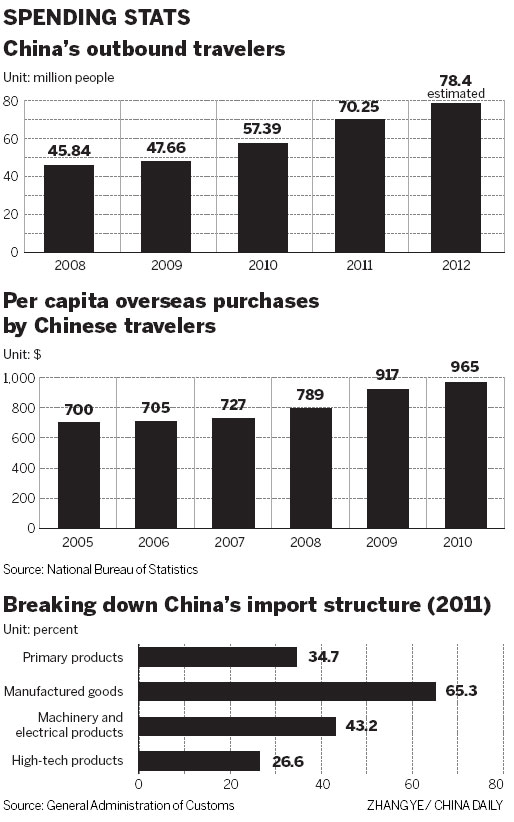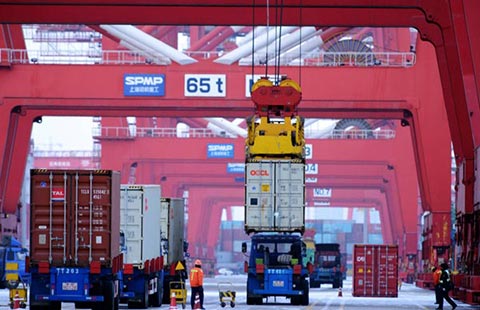Heavy pricing stifles shopping
By China Daily (China Daily) Updated: 2012-11-12 10:00

"Overseas traveling is actually beneficial to the growth of the domestic economy. The transportation industry, the banking industry, the insurance industry and travel agencies can all get boosted. Therefore, the employees in these industries will make more money to buy things in this country," said Ji Zhu, director of the World Economy Research Center at Beijing Technology and Business University.
"People's income is growing. So is the inflation rate. That's why many people feel they don't have enough money to spend. But it is still possible to go traveling because that is a good way to put all the worries aside," Ji added.
At present, the rapid process of industrialization and urbanization in China provide a vast consumer goods market. Experts said the importation of more consumer goods will bring about more competition, enhance the level of people's buying habits and improve their welfare.
The 12th Five-Year Plan (2011-15), an official document that determines the direction for China's economic and social development, stipulated the country should optimize the structure of imports and moderately expand the imports of consumer goods to adjust and balance the macro economy.
In recent years, China's imports and exports have grown rapidly. However, import policies fail to effectively serve the strategy of expanding domestic demand. Most of the imported goods are concentrated on industrial supplies, such as raw materials, fuel and equipment.
If there are more varieties of imported consumer goods, people will have more choices and will be more likely to be motivated to buy things. Once people have the desire to spend money, they can always find plenty of places to do that.
The abundance of consumer goods is just a prerequisite. Over the years, many businessmen have got used to ripping off tourists or shoppers. A well-regulated market and a fair trading environment are also important.
"It is quite understandable that many people travel and shop abroad. One way to draw more people back is to put more effort into removing the constraints on the development of China's domestic market, including food security issues, the protection of consumers' rights and the equality of income distribution," said Chen from the State Council Development Research Center.
Ye Shiwen contributed to this story.
- Xiaomi to equip devices with Microsoft software
- Farm produce prices continue downward trend
- Lighting view of Shanghai Disney Resort
- $45.5b pension funds set to play stock market in Aug
- Lenovo vows to revive smartphone business
- Tainted soil rich in opportunity
- World's longest glass-bottomed bridge takes shape in Hunan
- SoftBank to sell 4% stake in Alibaba

















